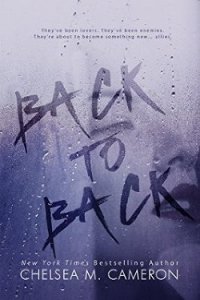The Adventurous Four - - (книги без регистрации .txt) 📗
"But we've no time for fishing about here," he said. "We shall be caught by the tide if we don't make haste."
Sure enough, the tide was on the turn—but before it could reach the jagged line of rocks over which the children were climbing, they had come to the end of them, and had waded through a pool to the sandy shore of the next island.
"Now we're on island number two!" said Tom, capering about. "Golly! I am hungry!"
So was every one. "Well, if we eat all our food now, we shall have to wait ages for our next meal, unless we can find something on this island," said Andy. But he was hungry, too—so they ate their cold sausages and potatoes, and sucked a toffee each.
Then they set off to explore the second island. They turned to climb the cliff s—and had a big surprise I
"Look! Caves!" said Tom, pointing to big black openings in the cliff. "Look at that! Caves of all lands and sizes and shapes! Let's have a look at them."
They made their way to the first cave—and just outside it Andy stopped and stared at something in the sand.
"What's up?" asked Tom.
"That!" said Andy, and he pointed to a cigarette-end that lay rolling a little in the breeze.
"A cigarette-end!" said Tom, looking all round, as if he were looking for the one who had smoked it. "Well! Somebody has been here all right—and not very long ago, either. But there's not a single house on this island, ruined or whole!"
"Perhaps the people live in these caves," said Jill, looking half-timidly at the first one.
"We'll go in and see," said Andy. He pulled a roll of oilskin from his pocket and out of it took a half-candle and a box of matches. Andy never ran any risk of his matches getting wet—and now the children were glad that he was so careful, for no one really wanted to go into the caves without a light of some sort.
Andy lighted the candle and thea, leading the way. he stepped into the first cave. The others followed him. The floor was thick with silvery sand, and the walls of the cave were high and smooth. It ran back a long way. and then narrowed into an archway. Through this the children went into another cave, the tiny light of the candle shining on rocky grey walls, and high, rough roof. The floor of the cave then began to go upwards, and became rocky instead of sandy. The cave narrowed into a passage, whose roof was at times so low that they bomped their heads against it.
And then they came to the Round Cave, which was the name they at once gave the last strange cave. It was almost perfectly round, and as the floor slanted down towards the middle, it felt like being inside a hollow ball!
But it wasn't the roundness of the cave that startled the four children—it was what it held!
Piled high, everywhere were boxes, sacks, and big tin chests with strange words on them! Some piles reached to the roof of the cave, others reached half-way.
"Golly! Look at that!" said Tom, in the greatest astonishment. "Whatever's in all those boxes and things—and why are they here?"
The little flame of the candle flickered on the strange array in the cave. Andy set the candle gently down on a flat piece of rock, and pulled the neck of a thick brown sack undone. It was lined with coarse blue paper inside. He undid that—and then gave a low cry of surprise.
"Sugar! Stranger and stranger! I was expecting treasure or something—and it's sugar! I wonder what's in the other sacks and boxes."
Some the children could not force open, but others were already opened, as if some one had taken from them some of the contents. The boxes were full of tins—there were tins of soup, meat, vegetables, fruit, sardines—everything one could think of. There was a chest of flour, a chest of tea, tins of salt, even tins of butter and lard, well-sealed and air-tight.
"Andy—I really don't understand this," said Jill in a puzzled voice. "How did all these come here? And who do you suppose they belong to? As far as we know there isn't a single person on the island."
"I don't know any more than you do, Jill," said Andy. "It's like a dream; but anyway we shan't need to starve whilst there's all this food stored here!"
"But may we take it, if it belongs to anyone else?" said Mary, frightened.
"We can pay the person it belongs to," said Andy. "My father and your mother will gladly pay, to keep us from starving, if we have to spend the winter here!"
"Well, come on then—let's take all we want," said Tom, feeling so hungry that he couldn't wait a minute longer. "we'll keep a careful account of everything we take, and pay the bill and a little more, when we find out who owns this very curious larder."
"You're right, Tom," said Andy, in a puzzled voice. "It is a very—curious-larder!"
Chapter 8
Odder and Odder
The children each chose what they thought they would like to take away. Sugar they wanted, and salt. The tinned butter would be splendid, and any tins of meat and fruit. Jill thought she might be able to make some rolls of bread with the flour, or, at any rate, some scones. They took tins of powdered milk too, and each child carried quite a- heavy load down the narrow passages that led from the Round Cave to the shore-cave.
When they reached the open air Tom took a deep breath and set down his load. "My goodness, it was stuffy up there," he said.
"What puzzles me is why it wasn't more stuffy than it was," said Andy. "Air must get into that Round Cave through some hole we didn't see. Pick up your things, Tom, the tide is coming in. We can't stay on this beach. The sea will reach the cave before long."
"It's all right for about ten minutes," said Tom, pulling a fat little notebook from his pocket. "I just want to jot down a list of all the things we've taken, in case we eat them up and then forget what we had."
"Tom's always so honest," said Jill. "Well, I'll tell you the things, Tom, and you can write them down. Three tins of pineapple. One big bag of sugar. Three tins' of tongue. Four tins of-"
"Not so fast, not so fast," said Tom, busy writing. He wrote everything down, shut his notebook with a snap, and pushed it back into his pocket. Then he picked up bis load and followed Andy up the steep, rocky path.
Until the tide went out that night the children were prisoners on the second island, for there was no way to get back to their own island except by the line of roeks. This was now completely covered by the tide, and great showers of spray were sent high into the air as the water crashed against the rocks over which they had clambered early that day.
"Anyone got a tin-opener?" asked Tom, his mouth watering at the sight of the labels on the tins.
Andy had. In Andy's pockets there was almost anything that anyone could possibly want, from tin-tacks to toffee.
"You'd better open a tin, I suppose," said Andy, with a grin. "I've watched you sticking your finger into the sugar packet a dozen times already—and there'll be none left to take to our island if you do it much more. Open a tin of tongue and perhaps you won't feel so hungry for sugar!"
They all feasted on the tongue, which was really most delicious. They felt very thirsty afterwards, and as they bad not found any spring or stream on the second island they could not think what to do.
"Well, why don't we open a tin of pine-apple?" said Tom at last. "The chunks will be lovely and juicy and we can all have a drink of the juice in the tin too."
So a tin of pine-apple was opened. Both tins were carefully buried by the children, for even although the island seemed quite lonely and deserted they could not bear to make it ugly by leaving empty tins about. The gulls swooped round them all the time they ate, screaming loudly. Andy imitated them and they grew even more excited, at last landing on the ground behind the children and waiting there almost within touch.




